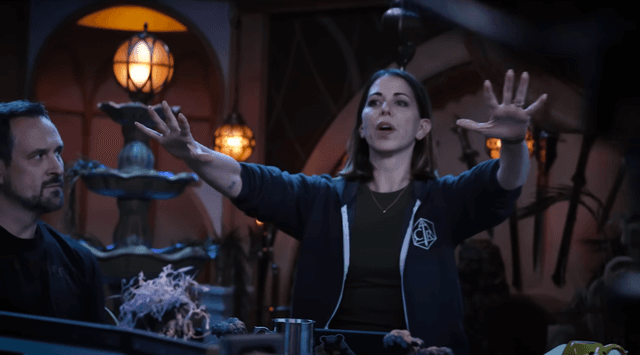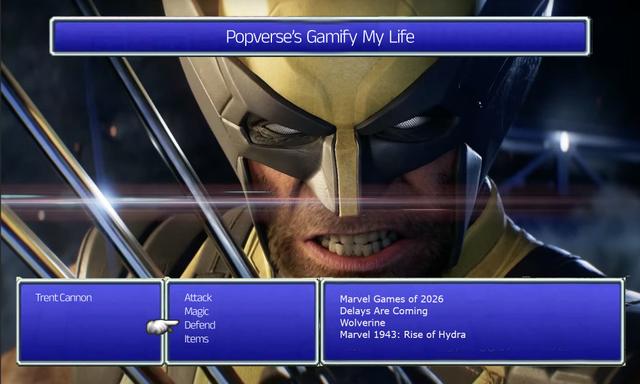If you click on a link and make a purchase we may receive a small commission. Read our editorial policy.
Does Guardians of the Galaxy Vol. 3 mean James Gunn is the ideal man to lead DC?
What Gunn's final Marvel movie says about his new role with DC Studios

Leaving the theater after Guardians of the Galaxy Vol. 3, the first thought that came to my mind wasn’t about how successfully writer/director James Gunn had wrapped up his unofficial trilogy of movies, or how genuinely impressive the CGI had been on Rocket and his little friends, although both things are certainly true. It wasn’t even about my utter adoration of Cosmo, who deserves a spin-off movie and Disney+ show and plush toy as soon as possible, thanks very much. Instead, my first thought was: “James Gunn is entirely the right person to head up DC Studios, and Guardians of the Galaxy Vol. 3 is the movie that demonstrates why.”
James Gunn vs. the MCU

I’ll be honest: part of that thought came from, bluntly, the fact that Guardians as a series, and Guardians Vol. 3 in particular, feels so unlike almost everything else that comes from Marvel Studios. For better or worse — and, given the financial success of Marvel, I think the answer has to be “better” — there’s a tendency in the MCU to take big ideas and ground them, bringing them closer to our reality in some way, big or small. The most obvious example of this is Eternals, which takes the colorful, operatic grandeur of Jack Kirby’s source material and makes it smaller in almost every way, but it’s a running theme throughout the MCU as a whole: the more outrageous an idea, the more likely it is to get reduced or outright excised at some point in translation.
By comparison, Guardians Vol. 3 is a movie that literally relies on the friendship between four CGI talking animals to drive the emotional narrative of the the majority of its story.
Talking animals just feels more like a DC idea to me. Is it because of the League of Super-Pets, the Legion of Super-Pets, Captain Carrot and the Zoo Crew? Perhaps. Or maybe it’s all the animal Green Lanterns, or Comet the Super-Horse and the various pet sidekicks, or Detective Chimp, or… well, as you can see, DC has no shortage of talking animals to choose from. (King Shark!)
There’s more than just animals at play, here, of course; although there are some obvious outliers — Thor, Doctor Strange, the Guardians themselves — Marvel’s biggest characters tend to have more grounded, science-based origins than DC’s big names: Green Lantern is, after all, a guy with a magical wishing ring, while Wonder Woman is a lump of clay that was brought to life, Aquaman is a merman, and both the Martian Manhunter and Superman are outright aliens. By the time we get to the Legion of Super-Heroes (a gang of teenaged aliens from 1,000 years in the future!), it begins to look particularly outrageous.
If James Gunn is a man who wants to do more of those kinds of stories — and his output both in the MCU and with The Suicide Squad suggests that he does — it makes sense for him to do so with DC properties, rather than at Marvel, which would rather keep their stories just a little bit closer to reality.
The heart at the heart of things

It goes beyond that, though. Thematically, there are two major ways in which Gunn feels like he’s coming from a Grant Morrison-esque playbook in his approach to superheroes in general, and specifically, superheroes inside the DCU — the place where Morrison has had their greatest impact as a writer, arguably.
Specifically, both Gunn and Morrison share a belief in kindness as a central part of being a good superhero, and subsequently, a central part of the superhero genre. Kindness is present in every story from Animal Man to All Star Superman and beyond for Morrison — it’s at the heart of their Flex Mentallo, which stands as close to a core thesis for the writer as exists — and it is, ultimately, the lesson of Guardians Vol. 3, as well. The theme is repeated again and again: Gamora learns to trust her better instincts on Counter-Earth, Mantis stops the beasts attacking by befriending them, Rocket chooses not to kill the High Evolutionary after defeating him. What makes these characters heroes — what makes them win, in the movie’s structure — is their kindness.
Again, that’s an attitude somewhat at odds with the rest of the MCU, where “heroes who kill” has been a dominant operating theory for years. That’s not to say there’s no kindness elsewhere in the Marvel movies or shows, but it’s something that exists to the side of the central stories — stories which are traditionally solved through fighting and shows of force, with little thematic resonance beyond “which one does the plot require to come out on top for the next installment?”
(Is it odd to think of DC’s fictional universe as a kinder one than Marvel’s overall? Perhaps so, but I look at characters like Wonder Woman and Superman and see an intentional empathy that just isn’t there in Marvel’s biggest characters…)
Perhaps I’m wrong, of course; maybe I’m misreading Gunn’s work, or the potential for the DCU to absorb what he wants to do with it. I might be entirely out of tune with the whole enterprise, ultimately, but I can say one thing, very simply: I really enjoyed Guardians of the Galaxy Vol. 3, and it made me very excited to see what he does next… especially given that he gets to do it with some of the most iconic characters in pop culture.
Follow Popverse for upcoming event coverage and news
Find out how we conduct our review by reading our review policy
Let Popverse be your tour guide through the wilderness of pop culture
Sign in and let us help you find your new favorite thing.
















Comments
Want to join the discussion? Please activate your account first.
Visit Reedpop ID if you need to resend the confirmation email.